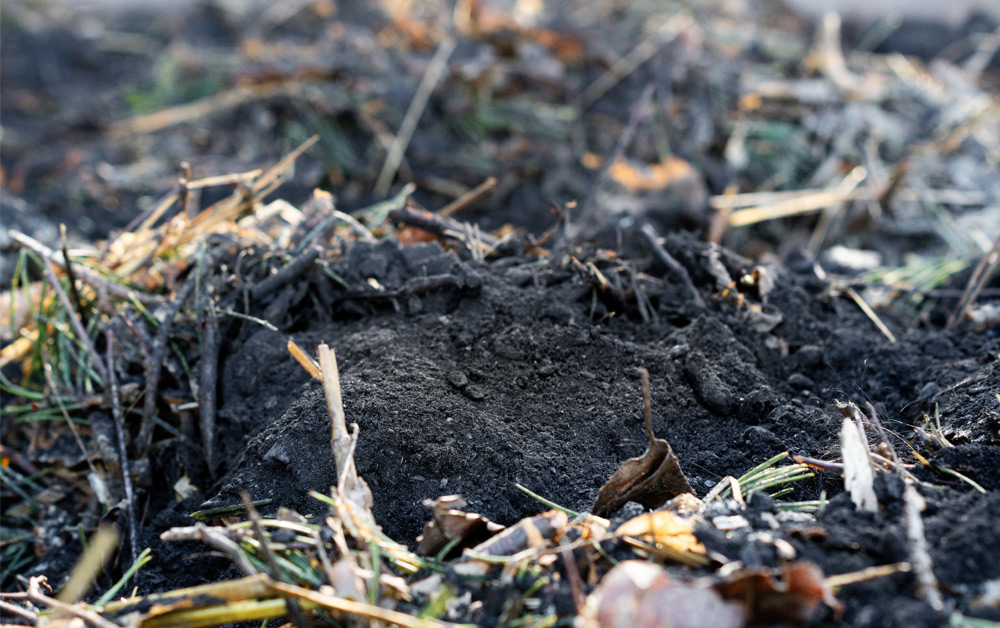Biochar is a carbon-rich material produced by heating organic matter, such as agricultural waste, in a low-oxygen environment through a process called pyrolysis. This process converts the biomass into a stable form of carbon, which, when applied to soil, can significantly improve its health and fertility. Biochar’s ability to enhance soil properties has been known for centuries, dating back to ancient Amazonian civilizations that used it to create fertile “terra preta” soils.
In recent decades, biochar has gained popularity as a sustainable agricultural solution due to its potential to improve crop yields, store carbon, and reduce greenhouse gas emissions. Farmers and researchers have increasingly turned to biochar to address modern challenges, such as declining soil fertility and climate change impacts, making it a valuable tool for sustainable farming.
How Biochar is Made
Biochar results from pyrolyzing organic materials, including crop residues, wood chips, and manure, at high temperatures with limited oxygen. This process transforms the biomass into a porous, carbon-rich material with unique properties that improve soil health.
The feedstock used for making biochar plays a crucial role in determining its characteristics. For instance, biochar made from manure may be richer in nutrients, while wood-based biochar typically enhances soil structure. This versatility makes it suitable for various soil types and farming needs.
The Benefits
Biochar offers numerous benefits for agricultural soils, including:
- Water Retention: It helps sandy soils hold moisture for longer periods.
- Nutrient Efficiency: It reduces nutrient leaching in clay soils, ensuring plants have access to essential elements.
- Carbon Sequestration: It helps to store carbon, mitigating climate change impacts.
- Enhanced Microbial Habitats: It provides an ideal environment for beneficial microorganisms.
- pH Balancing: It can improve acidic soils, creating a more favorable growing environment.
The Downsides
Despite its benefits, this material has some challenges. Its production requires significant energy and resources, and improper application can lead to uneven soil benefits.
- High Initial Costs: The production and purchase of biochar can be expensive.
- Inconsistent Results: Its effectiveness depends on soil type and application methods.
- Potential Overuse: Excessive biochar can disrupt soil balance.
- Energy Demands: Production may require non-renewable resources.
- Limited Availability: Access to quality biochar is not widespread in all regions.
Optimizing Soil Health with AgNote
AgNote offers tools to track soil health and monitor soil amendments effectively. By providing detailed insights into soil conditions, AgNote empowers farmers to make informed decisions and refine their soil management strategies. Sign up for a free 7-day trial today and take the first step toward enhancing your soil health.
